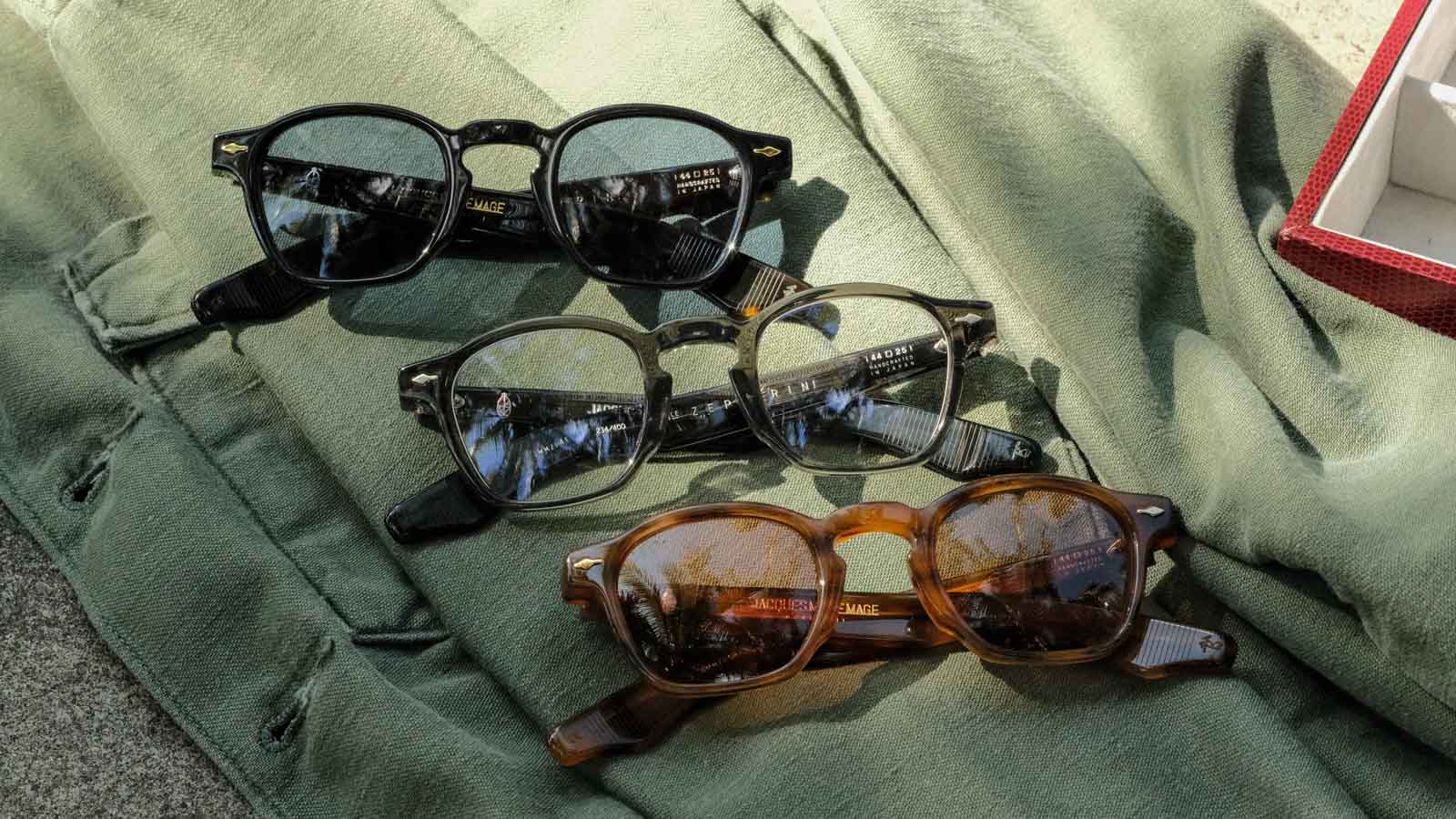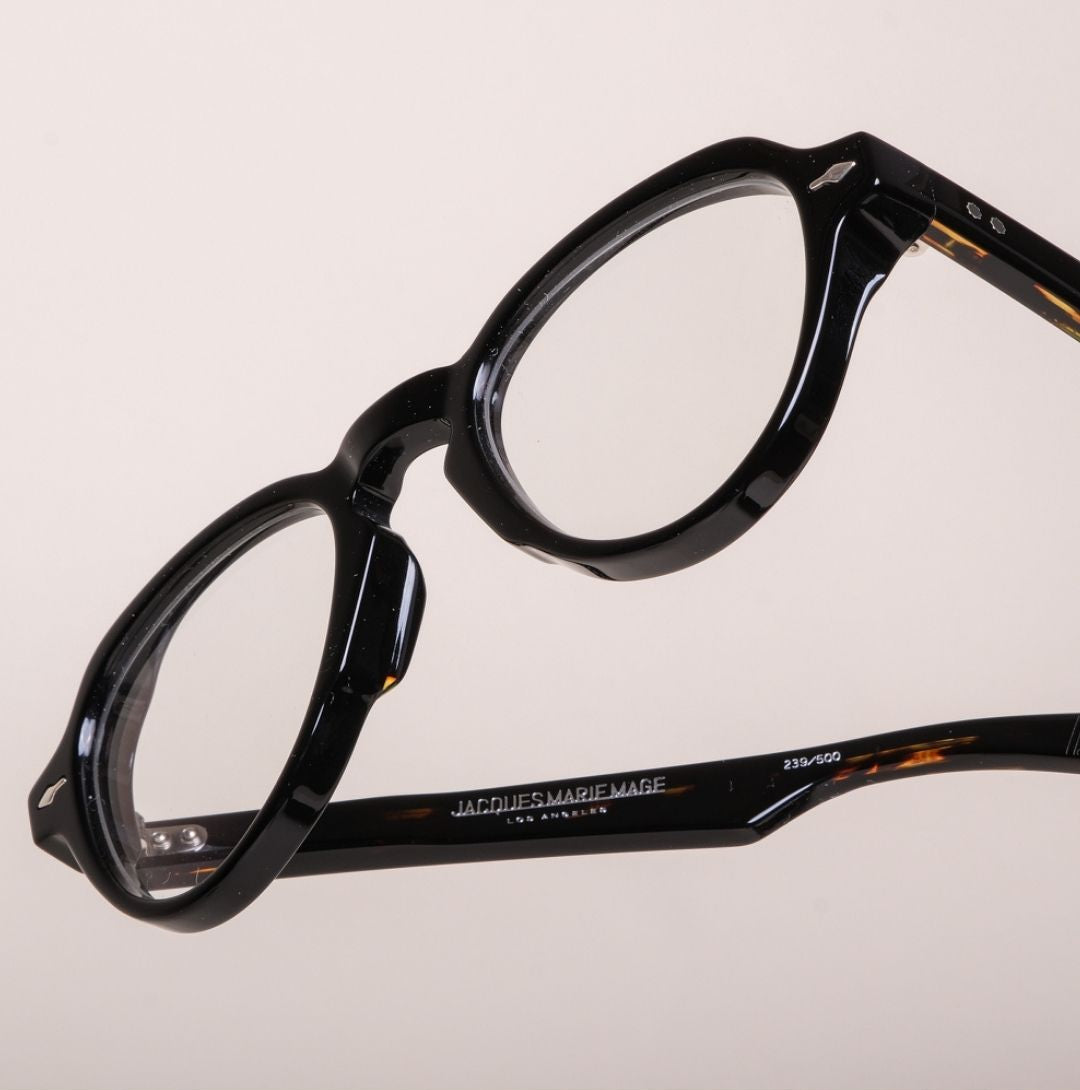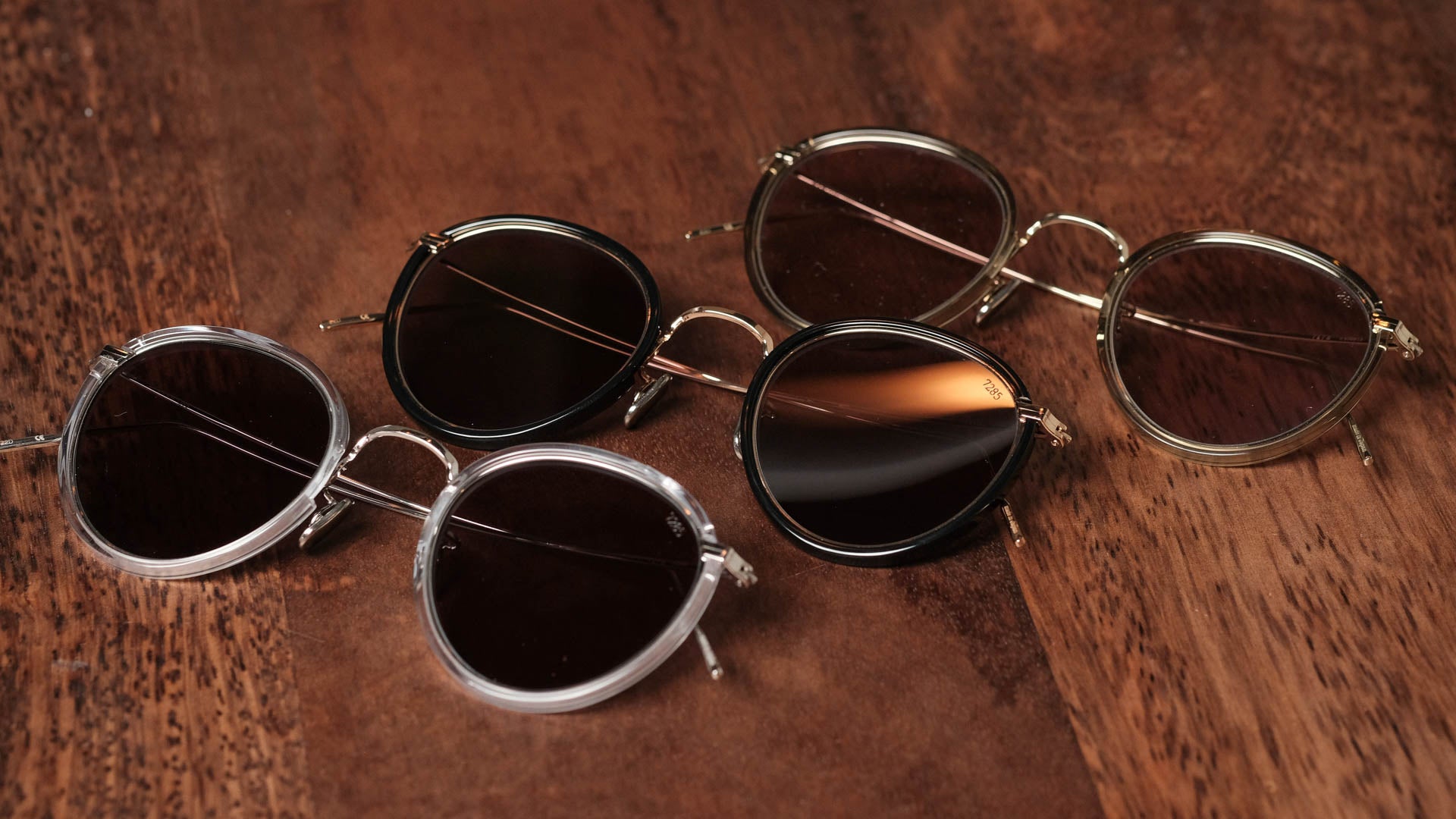
Eyewear Buying Guide
Buying eyewear online poses its challenge, but fear not. Here at twelvesixtynine we will walk you through the ins and outs of buying eyewear for a loved one and for yourself. Finally, the in-depth eyewear buying guide you have been waiting for.
Let’s tackle the first common misconception amongst most eyewear buyers; the numbers on the side of the temple. These serve as a generic representation of the lens size itself, not the frame surrounding the lens, which can be acetate or metal, thin or thick. Even though you may have sworn the sizing is as straightforward as your off-the-rack pair of Levi's, we are glad to inform you that they're not.  Now, not all hope is lost because the sizing can guide you in a general direction if you take into consideration a few pointers. Mastering eyewear takes time and whole lot of experience, but rest assured that our industry knowledge and advice will make you understand eyewear in a completely different manner than when you started reading this article.
Now, not all hope is lost because the sizing can guide you in a general direction if you take into consideration a few pointers. Mastering eyewear takes time and whole lot of experience, but rest assured that our industry knowledge and advice will make you understand eyewear in a completely different manner than when you started reading this article.
Before we begin, let's review what the 3 sets of digits on the temple actually refer to. The first set will be the Eye Size, typically measured horizontally from side to side. At times, it may be measured diagonally. Normally done so with more intricate shapes. The second set of numbers is in reference to the bridge width. In other words, the space between the lenses where your nose sits. Finally, the third set of numbers is your temple length which is typically 140 or 145mm. Some brands do produce 150mm temples for those will larger faces.
The Cardinal Rules of Eyewear
-
Eye Size is only an approximation. Always consider the shape, material used, and thickness to determine if the desired size will be correct. For example, a 46mm round metal frame will be smaller than a 46mm thick square acetate frame, due to the surrounding acetate adding 2 - 4mm to the overall thickness of the frame. Just so you know, this is not considering bridge size.

- The Bridge Size matters. This measurement is taken from the end of one lens to the beginning of the other. Simply put, it accounts for the distance between both lenses. One that plays a direct role in how wide the frame will sit on your nose, which will also play an intricate role in the total width of the frame. Let's use Jacques Marie Mage for this example, one that understands the importance of the bridge game very well. They opt to work with a larger bridge, to get the Zephirin (44mm) or the Devaux (43mm), to fit nicely on a small to medium face. How do they achieve this? As you can see below, Jerome Mage has added acetate nose pads to get a broader frame that still sits and looks great on the face.

- Eyeglass and Sunglass sizing is not made equal. Odd right? Let us explain. Consider two frames that are the same exact models, same dimensions and all. The fact that one has transparent lenses and the other has dark-tinted lenses, will play tricks on your eyes. Making you believe the optical version is larger than the sun version, or vice-versa. This is something essential to consider and should always be accounted for. Opting for 1 to 2mm +/- difference when switching from one to the other is advisable.
Let's practice this to ensure you got the hang of it. You currently own a square acetate frame in 46-24 and are in the market for 2 new pairs which are shown below. You want a sportier metal frame for the weekends and a rectangular pair to wear for business/formal events.
The metal option sits at 46-24, making it a good bet for your new pair of shades. Even though it has less acetate around it, and will be smaller in size overall, its still a great fit since metal frames look better when the frame offers a “fitted” look. You also have the added comfort of adjustable nose pads to ensure the frame sits nice and snug.

In regards to the rectangular option, you are looking for a pair of sunglasses measuring 53-21 and are still wondering if these will work. Considering that you gain 7mm on the Eye Size, these may seem out of the question. Now, once observed in detail you will notice that it lost 3mm at the Bridge Size, bringing this option back to contention. This is where you’ll need to look at yourself with your current frames, and make an executive decision if you can benefit from a few extra millimeters of coverage. Want to take the guesswork? Just reach out and we will give you our professional opinion.
Note, it is essential to consider if you have a larger or thinner than average nose when you are making these decisions. If you already know that a 20mm bridge is the widest you can go from past experiences, then its best to consult an eyewear specialist before jumping the gun on a 23mm bridge.






Leave a comment
This site is protected by hCaptcha and the hCaptcha Privacy Policy and Terms of Service apply.